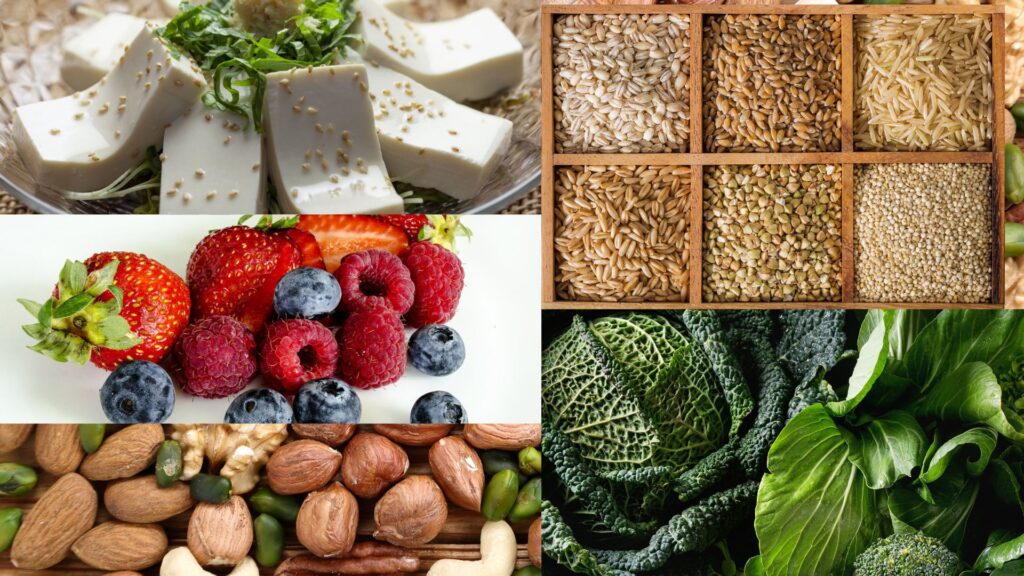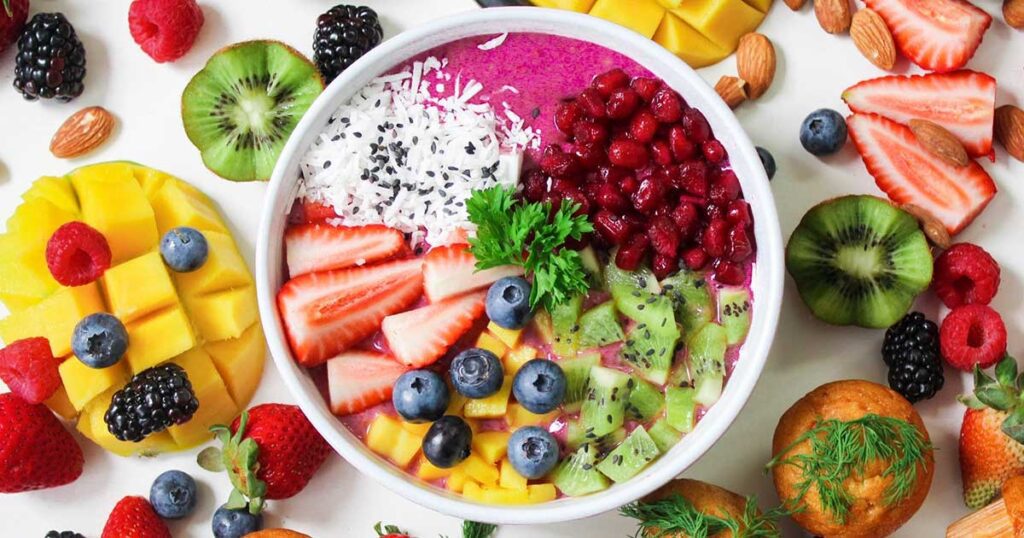Maintaining a healthy diet is essential for our overall well-being. The food we consume plays a crucial role in providing us with the necessary nutrients, vitamins, and minerals. Incorporating a variety of foods into our daily diet ensures that we get a balanced nutrition intake. In this article, we will explore five types of food that you should consider eating daily to support your health and vitality.
Introduction
Ever thought about the saying, “You are what you eat?” Well, it’s not just a catchy phrase. It’s a subtle nod to the importance of the foods we consume daily. A healthy diet is the foundation of a healthy life. By making conscious choices about the foods we consume, we can positively impact our energy levels, physical health, and mental well-being. Here, we’ll walk through five types of food that should become a staple in your everyday diet. Ready to take a flavorful journey to better health? Let’s dive in!
Importance of a Healthy Diet
A healthy diet contributes to overall wellness and helps prevent chronic diseases such as obesity, diabetes, and heart conditions. It strengthens our immune system, supports brain function, and promotes a healthy weight. By focusing on nutrient-rich foods, we can optimize our health and reduce the risk of developing various health issues.
Type 1: Leafy Greens
Ever watched a rabbit munching on some greens and thought, “Why are they so hooked?” Well, there’s a reason!
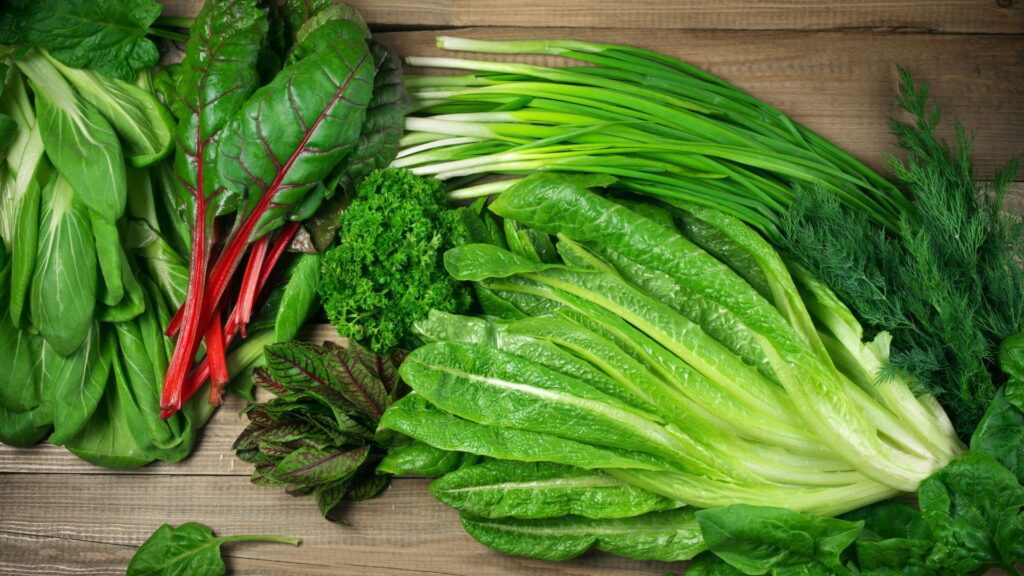
Leafy greens, such as spinach, kale, and Swiss chard, are packed with essential vitamins, minerals, and fibre. These vegetables are low in calories and high in nutrients, making them a perfect choice for maintaining a healthy weight. Leafy greens are rich in vitamin K, which supports bone health, and they also provide ample amounts of vitamin A, C, and folate. Incorporating leafy greens into your daily diet can enhance your immune system, improve digestion, and boost overall vitality.
Type 2: Berries
Berries aren’t just sweet treats; they’re tiny, colorful bombs of nutrition.
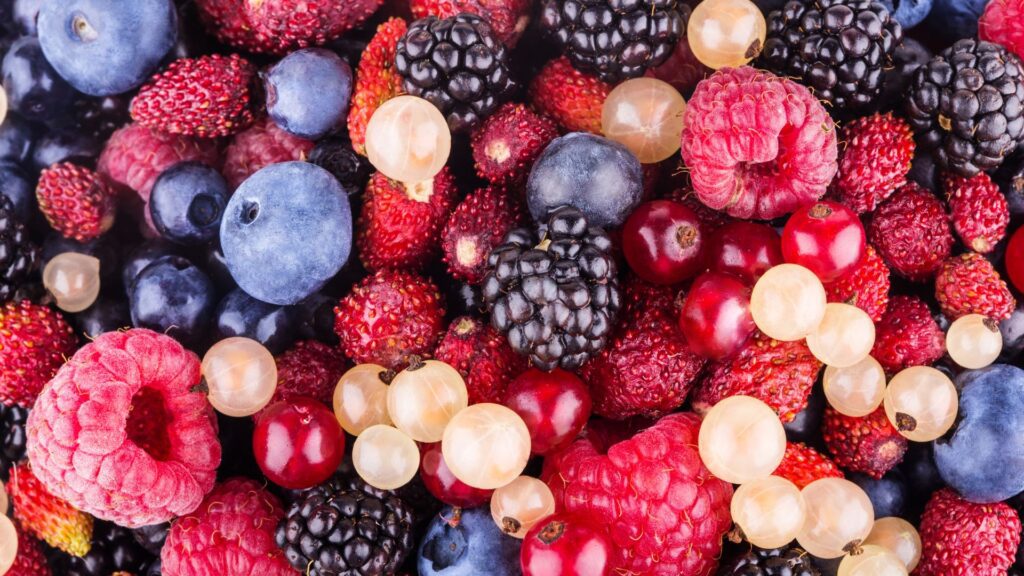
Berries, such as blueberries, strawberries, and raspberries, are not only delicious but also incredibly nutritious. These vibrant fruits are loaded with antioxidants that help protect our cells from damage caused by free radicals. Berries are also rich in fibre, which aids in digestion and promotes a healthy gut. Moreover, they provide a range of vitamins and minerals that support brain health and may even help prevent age-related cognitive decline.
Type 3: Whole Grains
Remember that old analogy of our body being like a car? Think of whole grains as the premium fuel.
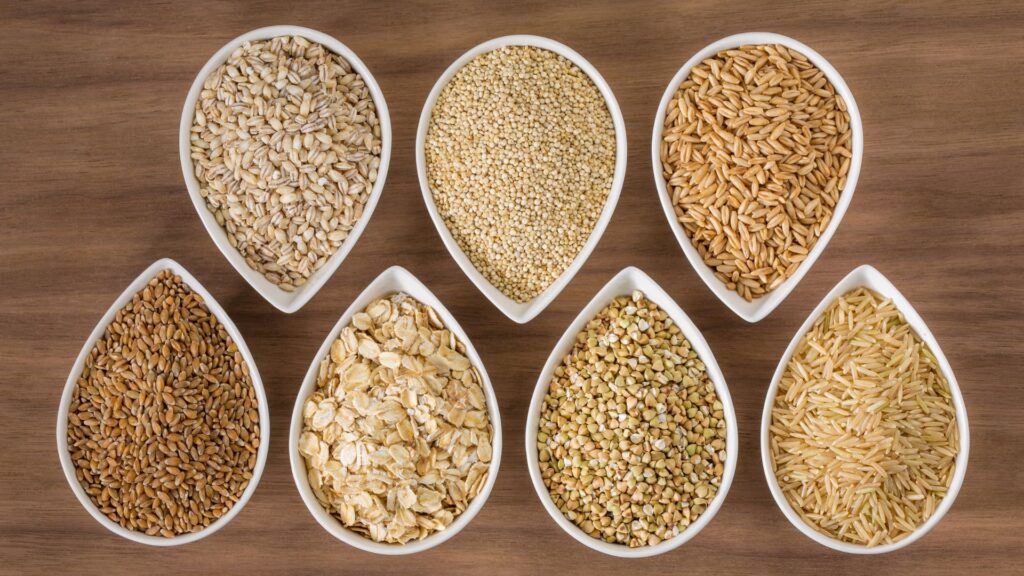
Whole grains, including oats, quinoa, and brown rice, are a vital source of complex carbohydrates, fibre, and various nutrients. Unlike refined grains, whole grains retain their bran and germ layers, which contain essential vitamins, minerals, and antioxidants. By incorporating whole grains into your daily diet, you can stabilize blood sugar levels, improve digestion, and reduce the risk of chronic diseases such as heart disease and type 2 diabetes.
Type 4: Lean Proteins
Fancy a lean protein platter? Good news: including lean protein in your diet is a choice your body will thank you for!

Proteins are the building blocks of our body, crucial for cell repair and growth. Opting for lean protein sources like chicken, fish, tofu, or legumes can provide the necessary amino acids without adding excessive saturated fats to your diet. These proteins help in muscle maintenance, boost metabolism, and keep you feeling satisfied after meals. Including lean proteins in your daily diet can contribute to maintaining a healthy body composition and supporting optimal physical performance.
Type 5: Healthy Fats
Size can be deceptive. These tiny nibbles pack a punch when it comes to nutrition.
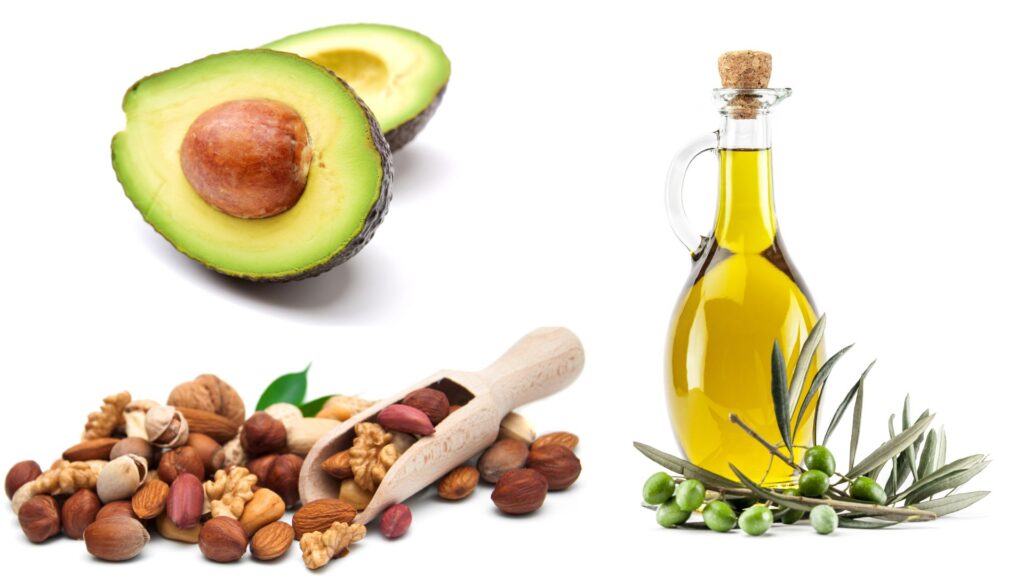
Contrary to popular belief, not all fats are bad for you. Healthy fats, such as avocados, nuts, and olive oil, are essential for various bodily functions. They provide energy, aid in nutrient absorption, and support brain health. Healthy fats also contain omega-3 and omega-6 fatty acids, which have anti-inflammatory properties and promote heart health. Including moderate amounts of healthy fats in your daily diet can help you feel satiated and provide long-lasting energy.
Incorporating These Foods into Your Daily Diet
To reap the benefits of these five types of food, it’s important to incorporate them into your daily meals. Here are some practical tips for including these foods in your diet:
Variety is key: Experiment with different types of leafy greens, berries, whole grains, lean proteins, and healthy fats to keep your meals interesting and nutritious.
Meal planning: Plan your meals ahead of time to ensure you have the necessary ingredients and can easily incorporate these foods into your daily diet.
Snack smart: Have a handful of berries or a mixed greens salad as a healthy snack option between meals.
Try new recipes: Explore diverse recipes that feature these foods as the main ingredients to discover new flavours and textures.
Balance your plate: Aim to have a balance of leafy greens, berries, whole grains, lean proteins, and healthy fats in each meal to maximize your nutrient intake.
Benefits of Eating These Foods Regularly
Incorporating these five types of food into your daily diet can have numerous benefits for your health and well-being. Some key advantages include:
Improved digestion and gut health
Enhanced immune system
Increased energy levels Better brain function and cognitive health
Reduced risk of chronic diseases
Maintained healthy body weight
By consistently including these foods in your meals, you can nourish your body with the essential nutrients it needs to thrive.
Tips for Meal Planning and Preparation
Meal planning and preparation can greatly assist in ensuring you consume these foods daily. Consider the following tips to make the process easier and more efficient:
Dedicate time each week to plan your meals and create a grocery list.
Opt for seasonal produce to ensure freshness and flavour.
Prepare meals in bulk and store them in portioned containers for convenience.
Utilize kitchen tools, such as blenders and food processors, to make smoothies or sauces with leafy greens and berries.
Experiment with different cooking methods, such as baking, steaming, or grilling, to keep your meals diverse and exciting.
By adopting these strategies, you can streamline your meal planning and preparation, making it easier to incorporate these beneficial foods into your daily routine.
Conclusion
Eating right isn’t about following fads but understanding the value of balanced nutrition. Incorporating a variety of nutrient-rich foods into your daily diet is key to promoting optimal health. The five types of food discussed in this article – leafy greens, berries, whole grains, lean proteins, and healthy fats – offer a wide range of benefits for your overall well-being. By making these foods a regular part of your meals and implementing practical tips for meal planning and preparation, you can enhance your vitality, support your body’s functions, and reduce the risk of chronic diseases. After all, isn’t life too short to not eat the best foods out there?
FAQs
- Can I eat these foods if I have dietary restrictions?
Yes, most of these foods can be adapted to different dietary restrictions. Consult a healthcare professional or nutritionist for personalized advice.
- How can I make meals with these foods more exciting?
Experiment with different recipes, herbs, and spices to add flavor and variety to your meals.
- Is it necessary to eat all five types of food daily?
While it’s ideal to include these foods regularly, listen to your body and make choices that suit your preferences and dietary needs.
- Are there any alternatives for people with allergies?
Yes, there are alternative options available for each type of food. Substitute ingredients based on your allergies and dietary requirements.
- Can I replace any of these foods with supplements?
Whole foods are generally preferred over supplements. However, consult a healthcare professional if you have specific concerns or deficiencies.
- Aren’t nuts and seeds high in calories?
Yes, but they are packed with nutrients and healthy fats. Moderation is key!
- Do frozen berries have the same benefits as fresh ones?
Generally, frozen berries retain most of their nutrients. Just ensure they are free from added sugars or preservatives.
